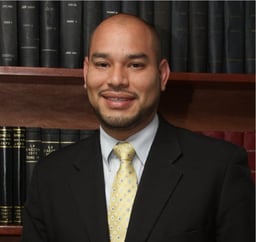Political turmoil continues to take centre stage in Nicaragua. In November 2024, lawmakers approved a series of constitutional reforms which elevated Vice President and First Lady Rosario Murillo to the position of “co-president”, extended the presidential term from five years to six, and expanded government control over the media, further consolidating the power of Murillo and her husband, President Daniel Ortega. While in exile in the United States, Nicaraguan historian Dora Maria Téllez told Agence France-Presse: “Everything in the reform is what has actually been happening in Nicaragua: a de facto dictatorship.”
Nicaragua has been under US and EU sanctions for human rights abuses since the government crackdown on mass protests in 2018, in which it is estimated by the Inter-American Commission on Human Rights that at least 355 people died. In addition, the country has been affected by the hardline anti-immigration measures of the Trump administration, as the US revoked the “humanitarian parole” granted by former President Joe Biden to certain immigrants from Nicaragua, Venezuela, Cuba and Haiti, allowing them to enter the US legally and remain for up to two years if they had a financial sponsor.
Despite the increasingly repressive political climate, over the last few years the country has seen an increase in investment after strengthening its ties with China. In April 2024, Nicaragua’s National Assembly authorised a $26.9m loan from China for the construction of three gas storage tanks, further expanding China’s foothold in the Nicaraguan energy space. Russia also continues to be a potential candidate for a new trading partnership as relations between the US and Nicaragua continue to deteriorate.
Nonetheless, the political situation has created severe challenges for Nicaraguan lawyers; many legal professionals have been forced into exile and those still working in the country have found that international events are difficult to attend due to visa restrictions and there are limited opportunities to leave the country on work-related endeavours.
In the banking and finance space, a new law was introduced in November 2024 to establish a regulatory framework for the administration of Nicaragua’s monetary and financial system, regulating local currency operations, requiring authorisations for capital contributions and share transfers, and bringing in a new sanctions regime for violations. In addition, in February 2025 a new amendment to the general banking law of Nicaragua took effect, aimed at strengthening financial sector regulation by expanding the supervision of credit unions and fintech companies and introducing stricter capital requirements for national banks and foreign bank branches.
On the corporate side, major companies have benefitted from the increased revenue coming into the country; this is in stark contrast to growing concerns from previous years which saw international firms and multinational corporations becoming hesitant to remain in the country and slowly starting to move their operations out of Nicaragua. However, the closure of the US Chamber of Commerce (AMCHAM) in Nicaragua in August 2024, which promoted investment and bilateral trade with the US – along with more than 1,000 non-governmental organisations – has raised concerns.
The energy sector is increasingly active: one of the largest ongoing projects is the construction of a 300MW natural gas-fired power plant in Puerto Sandino, which continues to be a source of work in the country, as well as the modernisation of Corinto port, the main maritime terminal on the Pacific Coast.
Finally, the intellectual property field has seen lawyers become creative in establishing a new clientele, with lines of work opening up from Chile with regard to IP protection for various wines. However, firms are still finding it challenging to deal with the slow trademark registration process, which is still largely dependent on physical visits to the Intellectual Property Registration Office.
Looking at the legal landscape within Nicaragua, the dominant forces continue to be regional practices Arias, Consortium Legal and GarciaBodan. Other notable Central American firms in the market are Aguilar Castillo Love, BLP and Lexincorp, while international firm Dentons is also continuing to grow its operations in the country. In addition, ACZALAW Nicaragua (which also has a presence in Honduras) has entered the rankings.
Prominent domestic firms include full-service practice Alvarado y Asociados and well-known boutiques such as intellectual property-focused Guy José Bendaña-Guerrero & Asociados.
